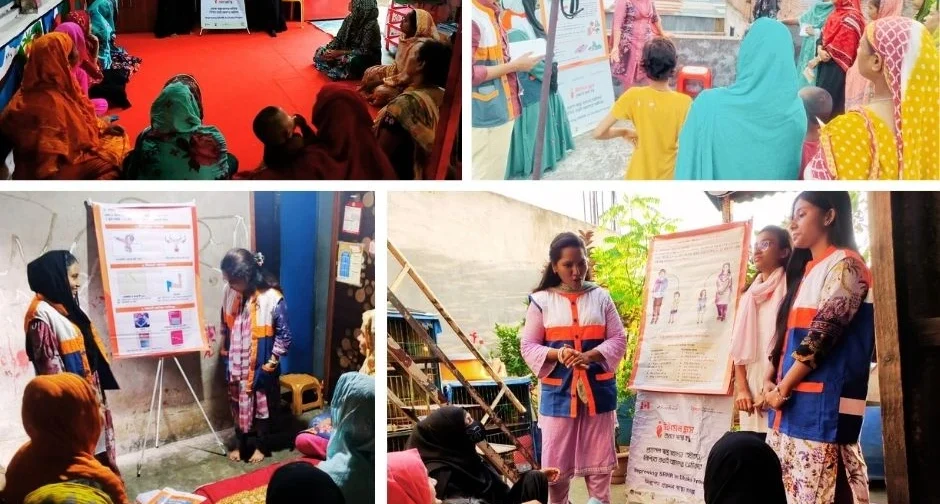
In June 2025, the Improving SRHR in Dhaka project, implemented by SERAC-Bangladesh collaborated with Ipas Bangladesh support from Global Affairs Canada through the HealthBridge Foundation of Canada, carried out a dynamic knowledge dissemination campaign across 46 community sites in Dhaka. The initiative, which reached 591 participants across areas like Kilgaon, Uttara, Bashabo, Mohammadpur, Mirpur, Old Dhaka, and Islambag, served as a crucial intervention in raising awareness about sexual and reproductive health and rights (SRHR), gender-based violence (GBV), and access to family planning (FP), menstrual regulation (MR), and post-abortion care (PAC) services.
What makes this project truly sustainable and impactful is its youth-centric approach. Sessions were designed and led by youth leaders and co-leaders, many of whom have been mentored under SERAC-Bangladesh’s longstanding youth engagement frameworks. Through community outreach events, these youth facilitators used interactive and empathetic techniques to inform, engage, and mobilize local communities especially adolescents and underserved women on sensitive topics often clouded by stigma.
SBCC Officers, youth mentor and youth volunteers are played instrumental roles in guiding young facilitators and ensuring the delivery of accurate, culturally sensitive information during each community session.
The program’s strength lay in its inclusivity. Of the total 591 participants, 398 were women and 193 were men, ranging from teenagers to adults. The presence of both genders reflects a growing acceptance and recognition that SRHR and GBV are societal issues that demand collective responsibility, not just women’s concerns. Volunteers also came from diverse backgrounds including community health workers, university students, and local residents making the program deeply rooted in community ownership.
By investing in local youth leadership, the project ensures that easy access SRHR Services and advocacy will persist long after the campaign ends. Youth involvement not only empowers the individuals leading the sessions but also ensures that the messages resonate more deeply with their peers. This bottom-up model of knowledge sharing promotes sustainability, community resilience, and behavioral change.
As part of its broader mission, SERAC-Bangladesh remains committed to advancing the health rights of marginalized populations by engaging youth, reducing stigma, and amplifying community voices. This project exemplifies how grassroots action, when paired with youth energy and strategic partnerships, can foster long-term change in urban health landscapes like Dhaka.